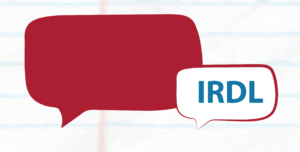When our second grant for the Institute for Research Design in Librarianship (IRDL) was ending in 2019, we wanted to take the opportunity to look back on the program, through the eyes of the 124 participants who had been through the program. The grant funding had been given to us to devise a model for continuing education for professional librarians and archivists with an interest in conducting research, so part of our looking back was to see if the model we designed had been impactful. We wanted to know about the possible short-term impacts, as well as longer-term impacts, the program had on their career trajectories, from the participants’ perspectives.
We used two ways to get at those perspectives. The first way was through a survey to all participants, 89 of whom responded. There were four big findings from the survey, all of which pointed to the design of the program having a positive influence on the trajectories of the participants: 1) the majority of the participants believed that the program helped them complete their IRDL project as well as conduct new research; 2) they reported that participating in the program helped them get tenure/promotions and salary increases, and/or new jobs; 3) they noted that their personal learning networks changed, as well as how they thought of themselves as a result of the program as a “librarian-researcher, and; 4) they reported boosted confidence in conducting research. That research was published (freely available to read) at https://journals.library.ualberta.ca/eblip/index.php/EBLIP/article/view/30094.
The second way we looked to understand the impacts of the program was through interviews and focus groups. Based on what we learned from the survey responses, we developed two sets of questions to dig deeper into some of the aspects of the program, to better understand what it’s like for the participants to incorporate research as part of their daily jobs and what kind of supportive measures and barriers for conducting research are in place in their workplaces. As a result of the prompts, most of the conversations were about research productivity, with the clear message that a supportive environment was important for them to conduct research, specifically identifying mentorship and becoming part of a research community. That research was published (also freely available to read) at https://journals.library.ualberta.ca/eblip/index.php/EBLIP/article/view/30461.
From a programmatic point of view, this reflective research has affirmed our decision to design IRDL around the concept of self-efficacy (mastery of the skill of conducting research, modeling of the research process, encouragement/support throughout the research process, and the feelings that come with conducting research {the positive and the negative!}) so that at the end of the year-long program, the participants know for themselves what they need in order to confidently conduct research and can seek it out.
I’m in debt to Frans Albarillo, the previous IRDL Scholar who took the lead on this research. We thought it was important that the “voice” of the research was from a participant themself and appreciate Frans stepping up to the plate to take on this multi-year project.
Albarillo, F., Kennedy, M., & Brancolini, K. (2022). Assessment of the Institute for Research Design in Librarianship (IRDL): Impact on the Research Productivity and Careers of Academic Librarians. Evidence Based Library and Information Practice, 17(4), 3–35. https://doi.org/10.18438/eblip30094
Albarillo, F., Kennedy, M., & Brancolini, K. (2024). Assessment of the Institute for Research Design in Librarianship, Phase 2: Impact on the Research Productivity and Careers of Academic Librarians. Evidence Based Library and Information Practice, 19(1), 4–34. https://doi.org/10.18438/eblip30461



